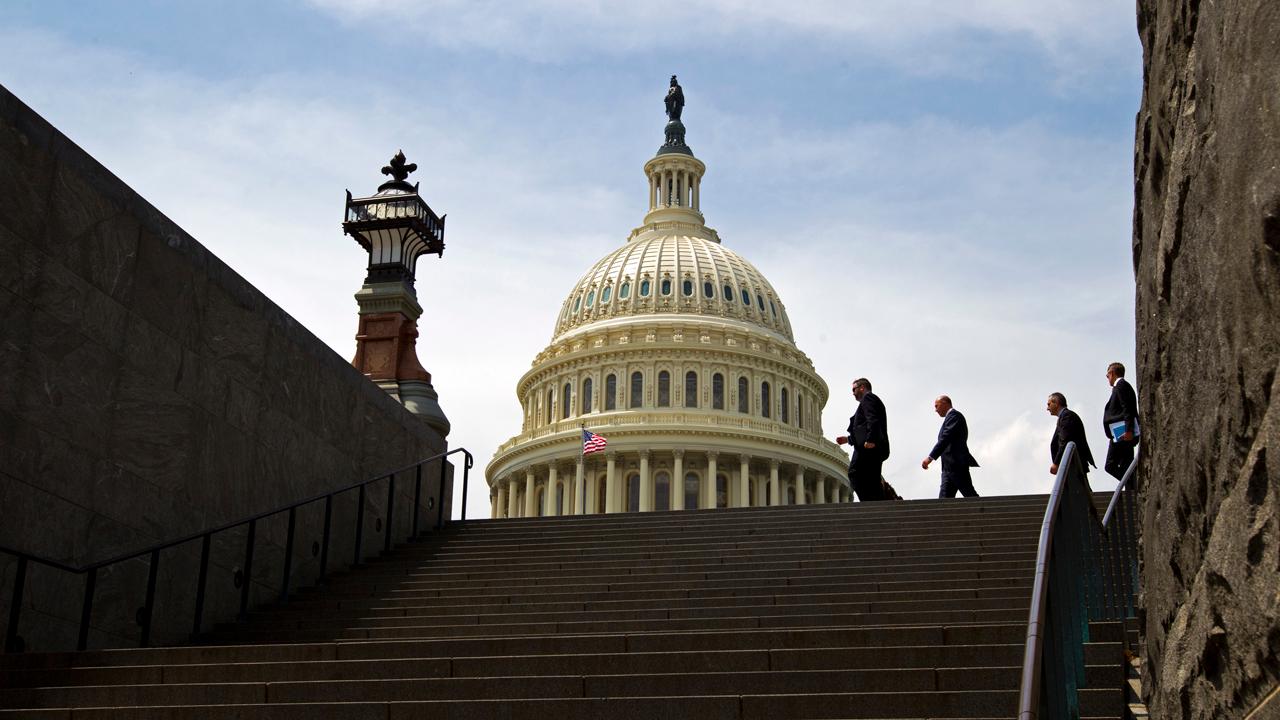House GOP weighing stopgap bills to avoid government shutdown
House Republicans have come to a standstill on negotiating a 2018 spending bill with lawmakers from both sides of the aisle and are considering crafting two stopgap measures that could keep the government open until the middle of January, FOX Business has learned.
Steve Scalise (R-LA), in a meeting with his whip team on Thursday morning, discussed the possibility of working to gather enough votes for two potential continuing resolutions (CR), and according to a source familiar with the matter, “it seems to be where things are heading on extending the budget at this time.” House Republican leadership is expected to take up the issue at Friday’s conference meeting.
The first short-term spending bill would keep the government open from Dec. 8, the deadline to address the expiring 2017 budget, through Dec. 22. At that time, House Republicans are hoping to have enough support to pass another continuing resolution that would last until mid-January, according to congressional aides.
Another senior congressional aide told FOX Business on Thursday that only one extension to Dec. 22 might be necessary and that ongoing negotiations could avoid a second CR.
Throughout piecing together the short-term fixes to the expiring budget, some House Republican leaders are banking on cobbling together support from Democrats in order to pass a bill that would last the rest of the year.
A spokesman for Scalise declined to comment when asked about the details of Thursday’s meeting or plans to move forward with two CR’s. A spokesman for Ryan did not return calls for comment when asked about the budget.
However, outreach from Republicans to Democrats might be easier said than done because of their differing set of priorities.
Members of the Republican Study Committee, a conservative group of approximately 150 conservative House Republicans, are already planning a counter offensive if they’re approached with short-term solutions that are not “clean” and have an exorbitant amount of spending increases on government subsidized programs, according to those within the group who wished to remain anonymous.
“Conservatives are still trying to figure out what’s all on the table. The timeframe is not the primary concern. The primary concern is what’s packaged within it. Late December CR’s are usually used to pass things that are unsavory to conservatives. If it’s clean, then it’s a different ball game,” said one member.
House Freedom Caucus members may also be a hurdle for those who want to come an agreement on a short-term spending solution.
Rep. Andy Biggs (R-AZ), a House Freedom Caucus member, told FOX Business he's against moving ahead with negotiations for a CR and suggests the Senate should take up passing the House appropriations bills instead.
"The House passed 12 appropriations bills almost three months ago. The Senate should be taking those up and putting those out so we can get a true budget out instead of these CRs," Biggs said.
A spokesman for the Republican Study Committee declined to comment.
Democrats, on the other hand, have continued to go down the path of most resistance and continue push for continued protections for Deferred Action for Childhood Arrivals (DACA) participants, also known as Dreamers, more spending on the Children’s Health Insurance Program (CHIP) as well as continued funding for community health centers, according to congressional aides familiar with the matter.
CHIP provides health insurance to eligible children from low-income families either through Medicaid or separate CHIP programs, which are funded by the states and the federal government. If Congress cannot come to an agreement on funding the program, it could leave millions of children without insurance, including those living in Arizona, California, Minnesota, Ohio, Oregon and the District of Columbia, who run out of CHIP funding by Dec. 31, according to Georgetown University’s Center on Children and Families. President Trump’s 2018 budget proposal includes cutting billions from CHIP over two years and limiting eligibility for federal matching funds.




















